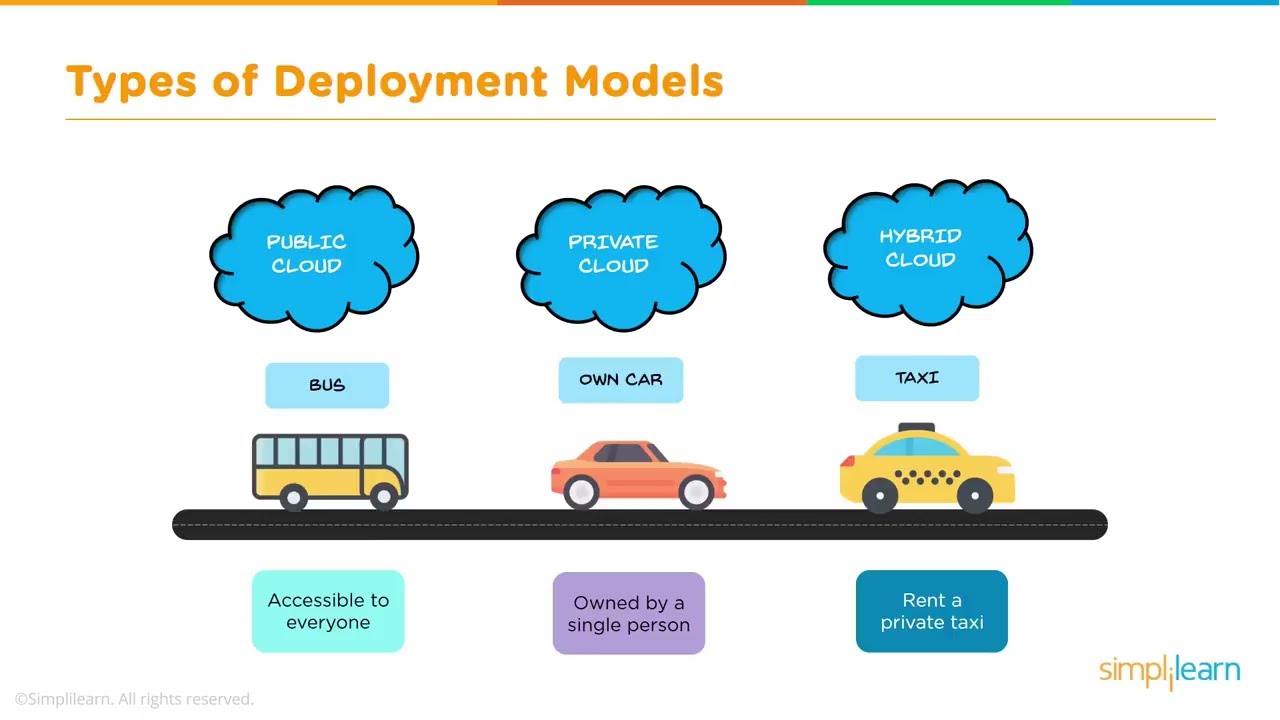
Hybrid cloud is a buzzword that has been gaining momentum in the tech industry for the last few years. It has become a popular choice for businesses looking for a versatile solution that combines the benefits of both public and private clouds. In this article, we will dive deep into the world of hybrid cloud, its benefits, use cases, and some practical advice on implementing one for your business.

A hybrid cloud is a computing infrastructure that combines two or more types of cloud services, usually a private cloud and a public cloud, to deliver an integrated solution. A private cloud is owned and operated by an organization, whereas a public cloud is owned and managed by a third-party cloud service provider. The combination of these two environments enables organizations to leverage the benefits of both cloud models while addressing their specific workload needs.

The rise of hybrid cloud adoption can be attributed to its numerous benefits. Here are some of the top benefits of using a hybrid cloud:
One of the significant advantages of a hybrid cloud is its scalability and flexibility. Organizations can scale their resources up or down as per their requirements, depending on their needs, without facing any limitations due to the capacity of their private cloud. By combining the public cloud’s elasticity with the control and security of the private cloud, businesses can optimize their workloads’ performance, improve efficiency, and reduce costs.
Another advantage of a hybrid cloud is its cost-efficient nature. Organizations can choose to use public cloud services for non-sensitive data and applications that do not require the utmost level of security, while keeping sensitive data and mission-critical applications on their private cloud. This approach ensures that businesses can save money by reducing their private cloud infrastructure costs while achieving optimal performance from their mission-critical applications.
Security is a significant concern for businesses when it comes to cloud adoption. With Hybrid Cloud, organizations can ensure the security of their sensitive data and applications by keeping them on their private cloud, while utilizing the public cloud for non-sensitive tasks that do not require a high level of security.
Hybrid cloud provides an efficient disaster recovery solution for businesses. By keeping mission-critical applications and data on their private cloud, businesses can ensure that they have complete control over their data in the event of a disaster. In case of a disaster, if the private cloud infrastructure fails, businesses can use public cloud services as a backup, ensuring business continuity.

Hybrid cloud can be used in various scenarios, depending on the organization’s requirements. Here are some of the most common use cases of hybrid cloud:
A hybrid cloud architecture is ideal for e-commerce websites that often experience fluctuating traffic volumes. Using a hybrid cloud can enable e-commerce websites to scale their resources up or down as needed, without facing any limitations or performance issues.
Big data applications require significant computing power and storage resources, which can be challenging to manage on a private cloud infrastructure. By using a hybrid cloud, organizations can utilize public clouds with vast storage and computing capabilities to handle big data workloads, while keeping sensitive data and applications on their private cloud.
Software development teams require a flexible and scalable environment to build and deploy applications quickly. A hybrid cloud can provide software development teams with the necessary resources, adding or removing resources as needs change.
Businesses can use hybrid cloud solutions for backup and disaster recovery. By maintaining a copy of their critical data and applications on a public cloud, businesses can continue their operations even in the event of a disaster.

Implementing a hybrid cloud solution requires careful planning and execution. Here are some steps to follow when implementing a hybrid cloud:
Assess your current IT infrastructure, including hardware, software, and networks, to identify areas that can be migrated to a public cloud and those that should remain on-premise.
Identify the applications and workloads that require the highest level of security and performance. These workloads should be kept on the private cloud, while non-sensitive workloads can be moved to the public cloud.
Select a public cloud vendor that meets your organization’s needs. Consider factors such as pricing, location, compliance, and security certifications when choosing a vendor.
Integrate your private cloud and public cloud services to ensure seamless data flow and application integration between the two environments.
Monitor and manage your hybrid cloud environment regularly to ensure optimal performance and address any issues that may arise. Regularly reviewing your hybrid cloud environment can help you optimize costs, improve security and compliance, and make necessary adjustments based on changing workload demands.
Hybrid cloud has become a popular choice for businesses of all sizes and industries. Here are some examples of companies that have implemented a hybrid cloud solution:
Netflix utilizes a hybrid cloud solution to manage their massive amount of data and streaming services. They use Amazon Web Services (AWS) for their public cloud needs and maintain their private cloud infrastructure.
Coca-Cola uses a hybrid cloud solution to manage their IT infrastructure, which consists of both public and private clouds. They utilize Microsoft Azure public cloud services and maintain their private cloud for their mission-critical applications.
Airbnb is another example of a company that uses hybrid cloud solutions to manage their IT infrastructure. They use AWS for their public cloud needs, while their private cloud infrastructure is used for sensitive data and applications.
While hybrid cloud has its benefits, it’s important to understand how it compares with other cloud models. Here’s a comparison between hybrid cloud, public cloud, and private cloud:
Public cloud allows businesses to access computing resources and services on a pay-per-use basis from a third-party provider. While public cloud offers scalability and flexibility, it may not be suitable for businesses that require maximum control over their data and applications.
Private cloud provides businesses with complete control over their IT infrastructure, enabling them to customize their environment according to their specific needs. However, maintaining a private cloud infrastructure can be expensive and challenging to scale up or down as per workload demands.
Hybrid cloud combines the benefits of public and private clouds, providing businesses with the flexibility and scalability of public cloud services, while maintaining control and security over sensitive data and applications on their private cloud.
Implementing a hybrid cloud solution can result in several benefits for businesses. Here are some of the advantages of using a hybrid cloud:
Hybrid cloud allows businesses to optimize costs by utilizing public cloud services for non-sensitive data and applications, while keeping sensitive data and mission-critical applications on their private cloud.
By keeping sensitive data and applications on their private cloud, businesses can ensure maximum security and control over their information. Utilizing public clouds for non-sensitive tasks can also reduce the risk of data breaches.
Hybrid cloud provides businesses with the flexibility to scale up or down as per workload demands, ensuring optimal performance and efficiency.
Maintaining a backup of critical data and applications on a public cloud infrastructure can help businesses recover from any disasters or system failures quickly.
A1. Public cloud refers to accessing computing resources and services on a pay-per-use basis from third-party providers. A hybrid cloud combines both public and private clouds, enabling organizations to leverage the benefits of both environments.
A2. Hybrid cloud provides businesses with complete control over their sensitive data and applications, ensuring maximum security. However, it’s essential to select the right cloud vendors and implement proper security measures to maintain the security of your hybrid cloud environment.
A3. Yes, small businesses can use a hybrid cloud to optimize costs, improve scalability, and maintain control over their sensitive data and applications.
A4. When selecting a public cloud vendor, consider factors such as pricing, location, compliance, security certifications, and the ability to integrate with your private cloud infrastructure.
A5. Some popular public cloud providers for hybrid cloud solutions include Amazon Web Services (AWS), Microsoft Azure, and Google Cloud Platform.
Hybrid cloud has become a popular choice for businesses that require the flexibility and scalability of public cloud services while maintaining control and security over their sensitive data and applications on their private cloud. Implementing a hybrid cloud solution requires careful planning and execution, but it can result in several benefits for businesses of all sizes and industries. With the right approach, businesses can optimize costs, improve security, and achieve optimal performance from their mission-critical applications.